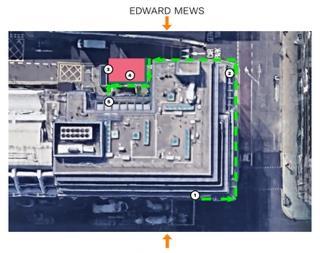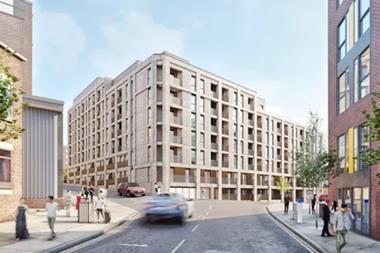More than a year on from the onset of the pandemic and the first national lockdown, it is remarkable how resilient the residential auction market continues to be.

In March 2020, our industry was preparing for what many feared would be an Armageddon scenario. Most auction houses transitioned quickly to online formats and virtual tours replaced physical viewings, while demand was supported by the furlough scheme, government loans, low interest rates and stamp duty exemptions.
These incentives, while hugely welcome, could not have supported the market were it not for the underlying confidence in residential property as an asset class.
The virtual auction rooms have been extremely busy. The four residential sales held by Allsop during the second half of 2020 raised a total of £208m – 21% up year on year – each raising more than their equivalents in 2019.
February 2021’s sale delivered a total of £56.4m – over £7m more than the year before, although of course stamp duty concessions played a part. But the catalogues include a huge variety of stock and a wide range of values. Owner-occupiers are there bidding for stock under £500,000, the current threshold for stamp duty liability.
The maximum saving to be made from this concession has been £15,000, or 3% on a £500,000 purchase, which paradoxically has created a surge in demand and a rise in prices.
Many feared a potential cliff-edge drop in demand and values, had the stamp duty exemption been withdrawn as planned on 31 March. The tapered return to previous rates announced in the Budget will ease those concerns: the nil-rate band is now extended on purchases up to £500,000 until 30 June, with no stamp duty on transactions up to £250,000 from 1 July to 1 October.
Deadlines approaching
From this point, there are likely to be falls in demand and supply in the occupier market as the pressure to beat deadlines ends. The furlough scheme is also due to end on 30 September, so we should expect unemployment to rise after that and some of the gains seen over the previous year may then be lost to modest corrections.
That said, the continued vaccine rollout and lifting of restrictions will definitely bolster confidence. Interest rates remain at record low levels and government-backed 95% mortgages will deliver a boost to first-time buyers.
The residential auction market, while clearly influenced by owner-occupier sentiment, is also driven by investors, traders and developers. These bidder classes, although entitled to the stamp duty exemption, have always been subject to the 3% stamp duty surcharge.
The financial impact of a return to normal SDLT rules will be a factor to consider but, at the end of the day, it is unlikely to have a significant impact on auction results. In fact, many will view the final quarter of the year as presenting potential buying opportunities – and that in itself will crank up competition. The professionals will continue to do business; they will bid if the price is right.

There has also been added competition from elsewhere; with so much uncertainty in the retail and office sectors in particular, many commercial investors are increasingly looking to residential auctions for new opportunities.
Whether renting or buying, people will always need a roof over their heads. What Covid has changed is how our homes are used – and consequently where we now want them to be.
Over the past year, our homes have become our offices, our gyms, our schools and our places of entertainment. Price growth has been greater for houses – and in particular those within commutable distance of conurbations. Homes with outside space, annexes and study areas are much in demand.
The factors that will influence the residential auction market over the next 12 months are many, varied and complex, but overall they point to sustained activity. Fundamentally, it is about confidence. Data aside, my colleagues and I get a good measure of that from the hundreds of conversations that we have daily with clients and bidders during the marketing of our auctions.
At the time of writing this, we are approaching our 31 March sale and I can assure you there is no shortage of confidence.
Gary Murphy is a consultant and auctioneer at Allsop






























No comments yet